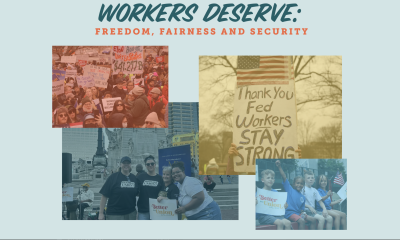By Oakland Community Leaders
There is a 13-to-1 racial wealth gap between the median White family and the median Black family in the U.S.
You can see one of the causes if you walk by any construction site and count up the number of Black workers you can find. One study listing the 33 whitest jobs in America found a large portion of them to be in the construction industry.
Ninety percent or more of electricians, painters, construction supervisors, tool and die makers, cement masons and others are white, according to a 2013 article in The Atlantic magazine.
Another national study found that minority-owned firms received only 57 cents for every dollar they would be expected to receive based on their availability in government contracting.
Women-owned firms obtained only 29 percent of the dollars they would be expected to receive.
In Oakland, African-American workers obtain 5 percent of the work on most city-funded construction projects, in spite of being 27 percent of the population.
The only project where the numbers are slightly better required a year-long battle by community groups to establish slightly more supportive hiring provisions, and even then some of the agreed-upon provisions were eliminated in the Project Labor Agreement negotiations when community groups were not allowed to be present.
Yet, the Building and Construction Trades Council of Alameda County has requested the City of Oakland (City) adopt a Project Labor Agreement (PLA) on projects funded by the Measure BB Transportation and Housing Bond Measure (Bond) approved by residents of Oakland for $346 million.
If and when the construction unions eliminate these racial disparities such a PLA might be reasonable. In the meantime, it would only reinforce discrimination, and mean that once again Black workers are paying heavy taxes for the building of projects where they are not allowed to work, and minority and women-owned companies are underrepresented.
The U.S. needs a stronger labor movement, and it can only be strong and united when individual unions purposefully and aggressively take on discrimination within their industries. The ILWU has a history of such action.
More recently, the hotel workers’ union has successfully demanded that hotels show progress in integrating their work force. Black workers have a higher percentage of unionization than any other ethnic group in the U.S., when they have the opportunity to join the unions in their industry.
The Building Trades should withdraw its request and work with creativity and enthusiasm on a set of policies that would reduce the deeply discriminatory situation for women and racially underrepresented workers and businesses in Oakland.
Now is the time, when jobs are a bit more plentiful and divisive competition is especially unwarranted. Among the needed steps:
- acknowledge the history of unfairness that has led to Black workers having less than 10 percent of the jobs on such projects as the 880 freeway replacement project;
- release figures on union membership by ethnicity, and release figures on the utilization of African-American journeymen;
- remove job requirements that serve as barriers, and provide support services to increase the numbers of African-American journeymen and apprentices;
- expand local apprenticeships in targeted zip codes and increase the percent of local Oakland hiring among apprentices;
- engage organizations that represent people of color and women in a massive campaign to integrate the industry;
- move apprenticeship programs to locations that are accessible to low-income urban residents;
- repudiate the arguments that hold up the precious banner of the labor movement in support of discriminatory policies;
- support Councilmember Desley Brooks’ ordiance to provide city funding for contruction job training, the Cypress Mandela Training Program and Citywide Job Centers.
In the meantime, it is the responsibility of the City of Oakland and its elected representatives to implement its own jobs policies that protect both labor and working conditions and the economic and job needs of Black, Latino, Asian, indigenous and female communities.
No policy which could potentially have a negative impact on Black workers and businesses should even be introduced for discussion until the disparity study the Council mandated years ago is finally completed and acted upon.
Any other course of action enhances both discrimination and gentrification.
Submitted by:
Kitty Kelly Epstein, PhD, Professor of Education and Urban Affairs; member of OaklandWORKS, author of “Organizing to Change a City”;
(2012)Margaret Gordon, Co-Director, West Oaklamd Environmental Indicators Project, former Port Commissioner;
Pastor Anthony L. Jenkins Sr., Taylor Memorial United Methodist Church;
Brian Beveridge, Co-Director West Oakland Environmental Indicators Project, OaklandWORKS Alliance;
Robyn Hodges, OaklandWORKS Alliance;
Paul Cobb, Publisher, Post News Group



 Activism4 weeks ago
Activism4 weeks ago
 Activism4 weeks ago
Activism4 weeks ago
 Alameda County4 weeks ago
Alameda County4 weeks ago
 Activism4 weeks ago
Activism4 weeks ago
 Alameda County4 weeks ago
Alameda County4 weeks ago
 Activism4 weeks ago
Activism4 weeks ago
 Activism4 weeks ago
Activism4 weeks ago
 Activism3 weeks ago
Activism3 weeks ago














































